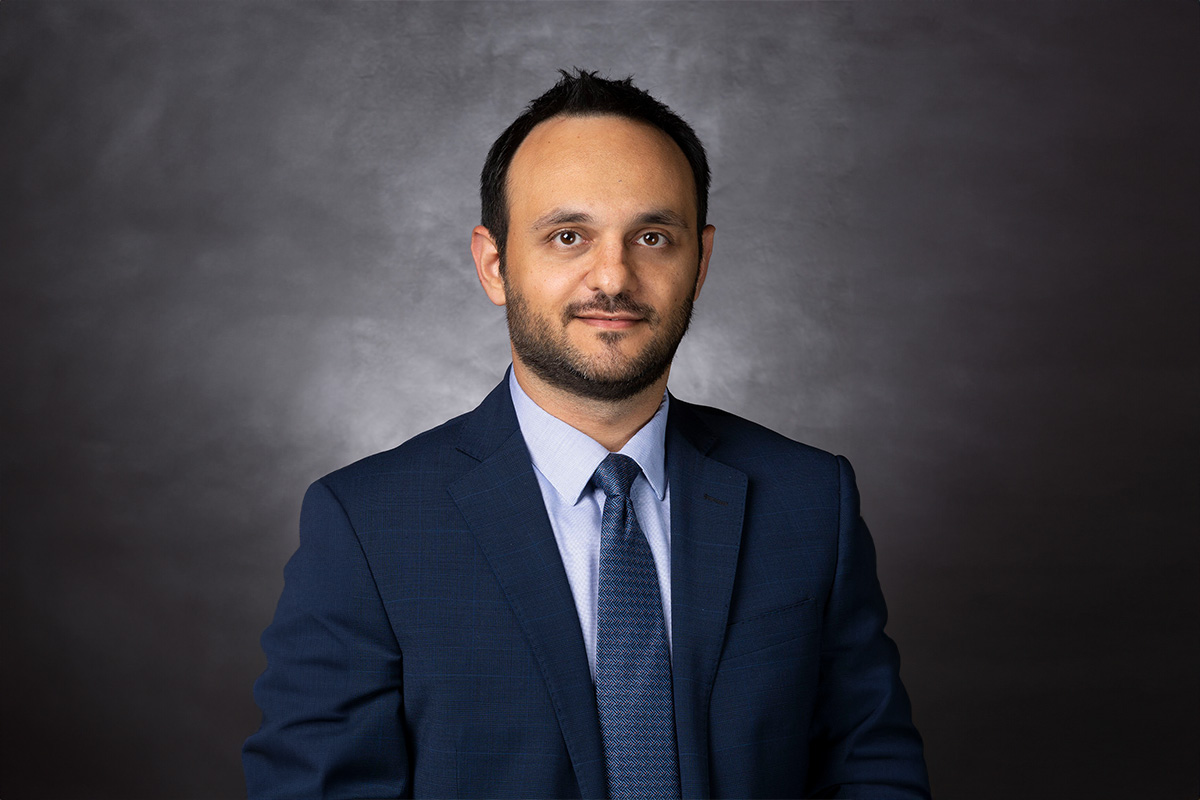Unraveling Leukemia’s Secrets With Dr. Hussein Abbas
The LAU alumnus is making strides in cancer research at MD Anderson, with a goal to revolutionize cancer therapy and improve the quality of life for patients.
In 2003, in the heart of Beirut, a young student named Hussein Abbas (BS ’06) embarked on a journey at LAU that would ultimately lead him to the forefront of cancer research and recognition on an international scale.
It was here that he first ventured into the world of biology. Little did he know that these initial steps would set him on a path to making consequential contributions to the field of biomedical research.
Having found in LAU the grounds for his curiosity to flourish, Dr. Abbas discovered that his true fascination lay in understanding the intricacies of cancer, particularly acute myeloid leukemia – AML for short – “a type of cancer originating in the cells that make up our blood,” he explained, “akin to an invasive weed in a garden, sprouting rapidly and pushing out the healthy plants.”
Early exposure to laboratory work and scientific investigation with LAU Associate Professor of Chemistry Ahmad Houri and, later on, with Chair of the Lozano Laboratory at MD Anderson Cancer Center Guillermina Lozano provided him with a strong foundation for this kind of work.
At MD Anderson Cancer Center, Dr. Abbas delved into the study of the p53 gene: a gene that functions as a regulator of cellular division to suppress the development of tumors. His promising research earned him the Floyd Haar Endowed Memorial Research Award for 2008–2009 and the William A. and Madelyn Welder Smith Foundation Fellowship in 2009 for stem cells, among others.
After completing his PhD, Dr. Abbas pursued a degree in medicine from 2010 to 2014 and later in computational/bioinformatics sciences followed by a residency at Johns Hopkins Hospital from 2016 to 2018 and a medical oncology fellowship from 2018 to 2021.
With the inception of his laboratory at MD Anderson, his work involving T cells, the immune system’s vigilant soldiers, led him to identify subsets of T cells in AML patients with notable variations observed between the initial diagnosis and the point of relapse.
“We aim to discern the factors that dictate why some AML patients benefit from certain treatments while others remain unaffected,” said Dr. Abbas. “By understanding these interactions and the very nature of T cells in AML, we are inching closer to pinpointing why certain treatments might fall short and how we can potentially enhance their effectiveness.”
But it is not always easy work, he added. “While T cells have shown remarkable prowess against various solid tumors like skin, lung and kidney cancers, harnessing their potential against AML has remained an enigma,” he said.
Dr. Abbas likened the situation to a security system that “recognizes external threats but overlooks an insider threat,” wherein donor T cells can effectively combat AML when introduced to a patient, but the patient’s own T cells often fail to respond adequately. “We hypothesize that AML cells devise ways to manipulate or ‘hijack’ the system, thus compromising the defensive mechanisms of the patient’s T cells,” he said, which makes reactivating these dormant T cells a formidable challenge.
He analyzes these results at the lab using the “bed to benchside and back to bed” approach. It begins with real-world observations from clinical settings with the patients he treats. “These observations raise pressing questions about the nature of the disease and its resistance to current treatments,” he stated. “Armed with these questions, we transition to the lab – the ‘benchside’ – to delve deeper into the ‘why’s and how’s.”
This investigative phase is far from straightforward, characterized by rigorous experimentation, consistent re-evaluation, shifts in hypotheses and a relentless pursuit of answers. Dr. Abbas humbly admits that many experiments do not yield immediate success, but “it’s these very failures that illuminate the path toward refining our approach and deepening our understanding,” he said.
Nonetheless, he underscores the potential for personalized treatments as a paradigm shift in cancer therapeutics. By mapping the cellular landscapes of individual patients, tailored therapies can be crafted to target specific weaknesses within the disease’s framework. Predictive analysis, informed by the research at the lab, has the potential to reduce the trial-and-error approach that sometimes plagues cancer treatment.
Dr. Abbas believes that by addressing the unique challenges presented by AML, the lessons learned may well revolutionize other fields of immunotherapy, which in turn could pave the way for broader applications in treating an array of malignancies.
“The current landscape of oncology, while challenging, is also exhilaratingly promising,” as it has made great strides in the past decade, he noted. “It’s paramount to approach our work with an ultimate goal in mind: enhancing the quality of life for patients, ensuring they have not just more days, but more fulfilling ones at that.”
